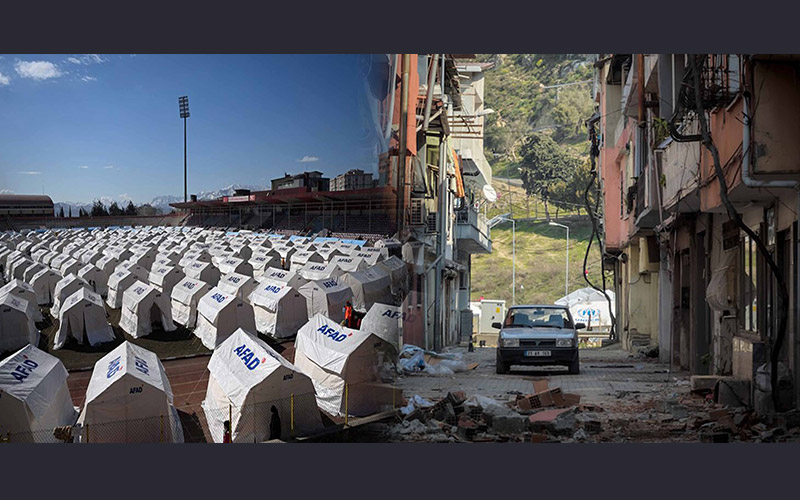Why The Turkey Earthquake Shouldn’t Stop You from Booking a Holiday in a Disaster Zone?
The disaster that hit Turkey struck the world! The Turkey earthquake has devoured and injured tens of thousands of people in what has become one of the biggest natural disasters in recent history. In such situations, travellers are surprised to hear that the government’s advice is not to cancel your holiday!
Of course, it is necessary to not rule out an earthquake; however, check your flight timing and status to be safe, as the significant tourist attractions such as the ports of Istanbul, Antalya, Bodrum, and Dalaman are running as normal with access on Turkey tourist visa and unaffected by the Turkey earthquake. It is critical to confirm government advice on such matters with your holiday or vacation provider and hotel to see if they are still welcoming visitors. But often, the disaster zones are not just fine, and it is necessary to recover a region hit by such a horrifying tragedy.

Turkey is one of the most sought-after destinations for UK holidaymakers, and this certainly shows an upsurge this year due to the strength of the pound against the Turkish lira. With the availability of Turkey tourist visas, the major tourist cities provide a sense of cultural immersion and much-needed relaxation. However, due to the level of destruction and the death toll exceeding 29,000 on Sunday, visitors are currently being warned in Turkey and advised to plan their vacation by checking with earthquake-affected zones.
So, are the Turkey Holidays Affected?
According to the Independent news, Hugh Faster, the founder of Turkey specialist Corinthian Travel, says, “South-eastern Turkey and the area around Gaziantep have many spectacular attractions and are noted for their regional cuisine, but have traditionally been the preserve of second- or third-time cultural visitors to Turkey.”
“The earthquake is a human tragedy but is unlikely to have much impact on Turkey’s major centres of tourism: Istanbul, Cappadocia, and the Aegean Coast – all of which are located hundreds of miles away to the west.”
In an early Monday update to the FCOD’s Turkey page, it was stated that individuals in the affected or surrounding zones should contact and let family and friends know that they are safe.
Added in the comment: “If you are in Turkey or plan to travel there, you should follow the information and advice from local authorities or your tour operator.”
Which parts of Turkey are affected?
The reports announce that the city of Gaziantep and its surrounding provinces were the hardest hit by the initial earthquake. Lying 823 km east of the southern port of Antalya and 1139 km southeast of the port of Istanbul, the city is in the southeast region of the country, which is close to the Syrian border at a sizeable distance from the major tourism hubs of Turkey.
Later on Monday, a second earthquake hit the town of Ekinozu, as reported by Turkey’s AFAP emergency authority. The town is 842 km east of Antalya and 196 km north of Gaziantep.
Are Flights to Turkey Cancelled?
Currently, there is no report on the cancellation of flights from the United Kingdom to Turkey as a result of the earthquakes. However, airports in the south-eastern region of Turkey province have closed including Adana Şakirpaşa, Hatay and Gaziantep Oğuzeli. You need to check out airport regulations for Turkey before you begin your journey.
Travel to Turkey’s major cities, Istanbul and Ankara, which are located in the west of the country and hundreds of miles from the earthquake zone. Also visit popular tourist destinations such as the Aegean coast, which is operating as usual.
As the earthquake struck Turkey, the possibility of additional aftershocks remains a concern. The initial survey carried out by UNESCO found that several buildings at the World Heritage Site of Diyarbakir Fortress and Hevsel Gardens Cultural Landscape have collapsed while the ancient Gaziantep Castle, one of the most famous landmarks of Turkey, has been severely damaged by the disaster. On the list of other world heritage sites not far from the epicentre such as Göbekli Tepe, Nemrut Dağ, and Tell of Arslantepe can also be affected by earthquakes.
Well, travellers can still look for an opportunity to explore the significant tourism hubs of Turkey, but it is best advised to check the government’s concerns and the authorities’ statements on the places planned to visit.
FAQs
Q1. Has the Turkey holidays been impacted?
This is a human tragedy but it has not impacted key tourism centers in Turkey comprising Aegean Coast, Istanbul, and Cappadocia that are afar to the west.
Q2. Which regions of Turkey have been impacted?
The earthquake has impacted Gaziantep and neighboring areas. Besides, Ekinozu too have been hit by the earthquake.
Q3. Are Turkey flights cancelled?
No reports have been disclosed on cancellation of Turkey flights. However, airports in Turkey’s south-eastern part such as Gaziantep Oguzeli, Hatay, and Adana Sakirpasa have closed.
Q4. Is travelling to Turkey safe at the moment?
Yes, travelling to Turkey is safe at the moment as far as the earthquake affected regions are avoided.
Q5. Which countries assisted Turkey after the earthquake?
France and Greece mostly assisted Turkey after the earthquake.
